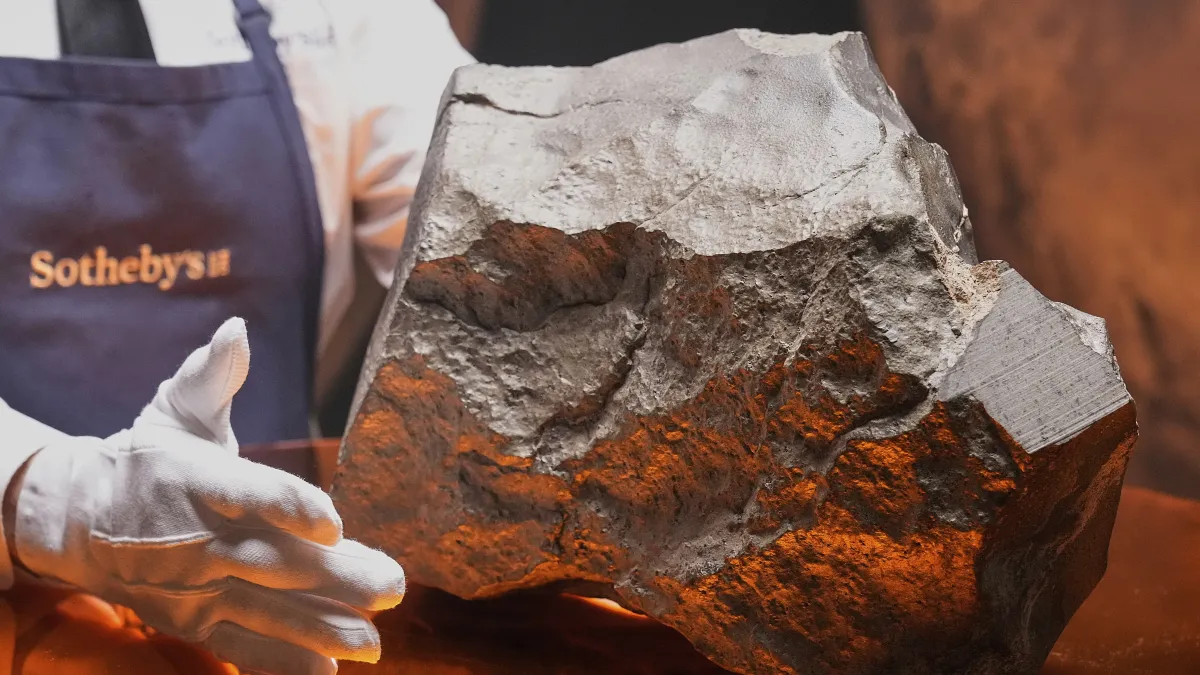Niger looks into $5M sale of Mars rock

DAKAR, SENEGAL—It’s the largest piece of Mars ever found on Earth—a 25-kilogram (54-pound) meteorite that fetched more than $5 million at a New York auction last month, setting a world record.
But in the West African nation of Niger, where the rusty-red rock was unearthed in the Sahara Desert, officials have launched an investigation into what they call possible “illicit international trafficking,” claiming it may have been smuggled out of the country.
Sotheby’s said the rock, named NWA 16788, was blown off the surface of Mars by a massive asteroid strike and traveled 225 million kilometers (140 million miles) to Earth.
It was discovered in the Sahara in northwestern Niger by a meteorite hunter in November 2023, according to the auction house. His identity was not disclosed. Nor was the identity of the buyer last month.
According to the Heritage academic journal, the rock was sold to an international dealer before it ended up in a private galley in Italy. A team of scientists from the University of Florence examined the rock last year to learn more about its structure and where it came from before falling to Earth, the publication said.
The meteorite was also briefly on display in Rome before it was next seen in public in New York last month during the auction.
Questions raised
Following the sale, Niger raised questions about how the meteorite came to be sold at auction.
Niger’s government announced an investigation last month to determine the circumstances of the meteorite’s discovery and sale, saying in a statement it was “akin to illicit international trafficking.”
Last week, President Abdourahamane Tiani suspended the export of “precious stones, semiprecious stones and meteorites nationwide” in an effort to ensure their traceability.
Sotheby’s said in a statement sent to The Associated Press (AP) that the meteorite was exported from Niger and transported in line with all relevant international procedures.
“As with everything we sell, all necessary documentation was in order at each stage of its journey, in accordance with best practice and the requirements of the countries involved,” the statement read.
Authorities in Niger did not respond to AP questions.
Patty Gerstenblith, a cultural heritage lawyer and expert on illicit trade, said that under the Unesco convention on cultural property—which Niger and the United States have ratified—rare minerals, like meteorites, can qualify as cultural property.
However, Gerstenblith said Niger needs to be able to prove it owned the meteorite and that it was stolen.
“If the meteorite was not stolen and if it was properly declared upon import into the US, then it would not seem that Niger can recover the meteorite,” she said.

















